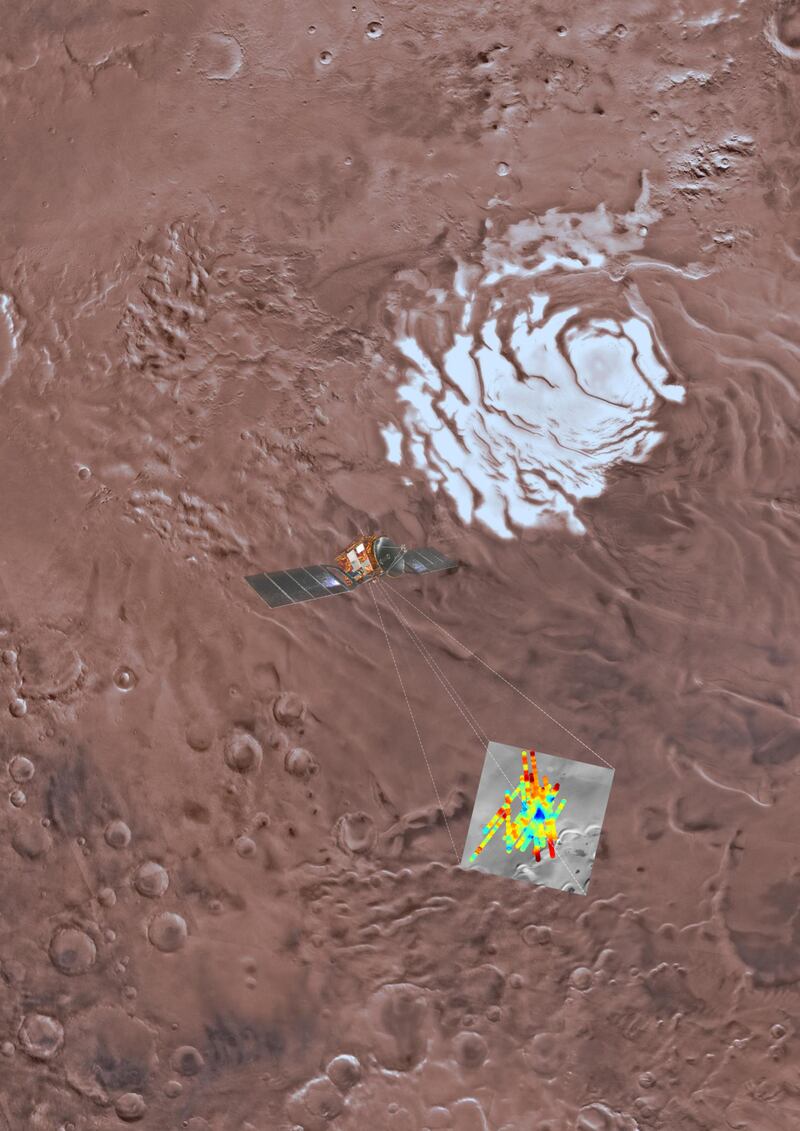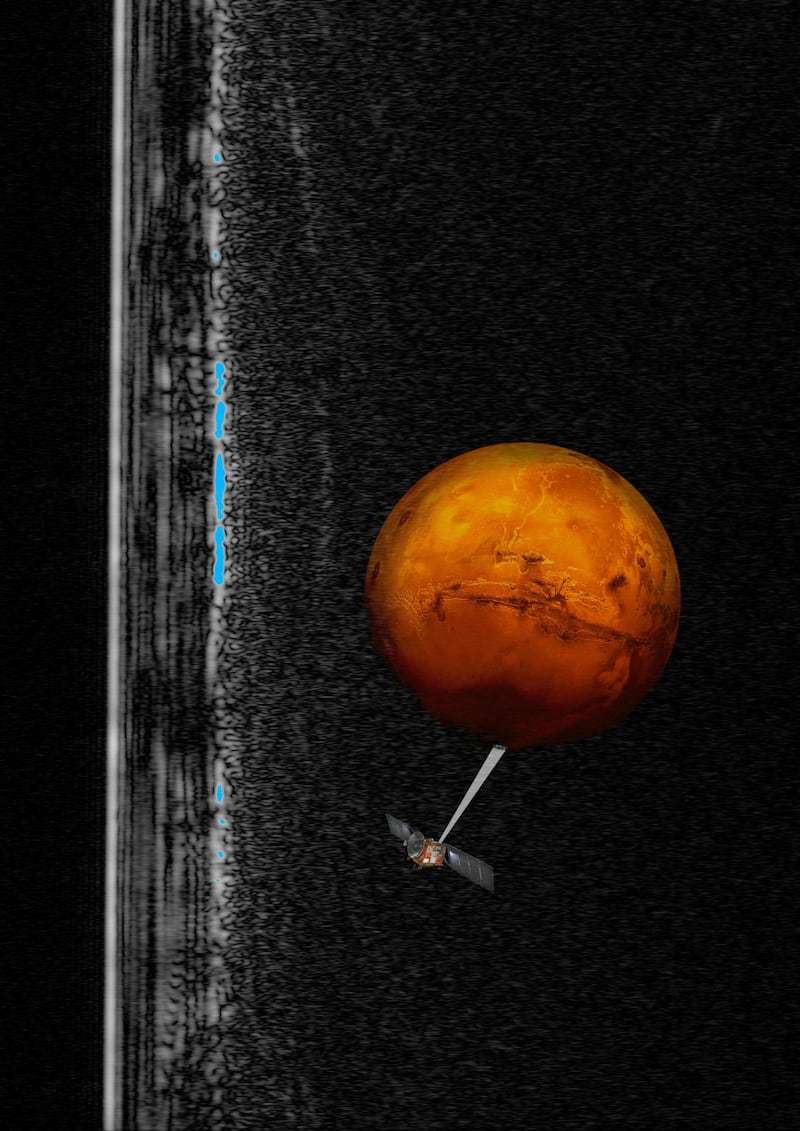A huge 12-mile wide lake of liquid water lies beneath the southern ice cap of Mars, scientists have learned.
Dissolved salts are thought to keep the water fluid, despite having a temperature below freezing point.
The discovery, which has major implications for the chances of life surviving on the Red Planet, was made by an orbiting European probe using ground-penetrating radar.
It is the first time a large stable body of liquid water has been confirmed to exist on Mars.

The lake, similar to those beneath the Antarctic and Greenland ice sheets on Earth, lies about 1.5 kilometres (0.9 miles) below the surface of a region called Planum Australe, close to the Martian south pole, and stretches out for 20 kilometres.
With surface temperatures as low as minus 68C, it would not exist as a liquid under normal conditions.
But dissolved salts of magnesium, calcium, and sodium – known to be present in Martian rocks – are thought to maintain the briny miniature sea by reducing the melting point of water to minus 74C.
An Italian team of scientists detected the lake while carrying out a radar survey using the Mars Express spacecraft.
Between 2012 and December 2015 the Planum Australe region was mapped by the Mars Advance Radar for Subsurface and Ionosphere Sounding (Marsis) instrument carried on the orbiter.
Radio waves beamed down to the surface by Marsis penetrated through the ice and bounced back to the spacecraft.
Far beneath the ice cap at Mars’s south pole lies a lake of liquid water—the first to be found on the Red Planet: https://t.co/VBue3BcEgn
— News from Science (@NewsfromScience) July 25, 2018
Among the 29 radar samplings, the scientists spotted a series of unusually strong reflections bearing a distinct electrical hallmark. They revealed the presence of liquid water.
Professor Roberto Orosei, from the University of Bologna, wrote in the journal Science: “Anomalously bright subsurface reflections are evident within a well-defined 20-kilometre-wide zone.. which is surrounded by much less reflective areas.
“Quantitative analysis of the radar signals shows that this bright feature has high relative dielectric permittivity (electrical polarisation) matching that of water-bearing materials.
“We interpret this feature as a stable body of liquid water on Mars.”

The lake may exist as a layer of clear water, or possibly be mixed with soil to form a sludge.
Either way, the discovery greatly increases the chances of extraterrestrial life existing on Mars.
Liquid water is an essential requirement of life as we know it.
Billions of years ago, Mars is thought to have had oceans and rivers, much like Earth. Primitive life may have evolved on the planet then, only to be snuffed out when the world lost most of its atmosphere and became an arid frozen desert.
If large bodies of liquid water lie beneath Martian polar ice, they could theoretically harbour living microbes to this day.
The high levels of salt in the water might make the environment tough but not impossible for life.
On Earth, one group of organisms known as “halophiles” thrive in highly salty conditions such as those found in the Dead Sea and Utah’s Great Salt Lake.
Speaking in a recorded interview released by Science, Prof Orosei revealed that his team spent years checking their results before being confident enough to announce the discovery.
“We found that any other explanation for these very strong echoes was not really tenable in light of the evidence that we had available,” he said. “We had to conclude that there is water on Mars today.”
The radar data showed that the lake contained a large amount of salt, Prof Orosei added.
“This is certainly not a very pleasant environment for life,” he said.
But he pointed out that similar salty subglacial lakes in Antarctica had been found to support life.
“There are single-celled organisms that survive in such an environment with a metabolism that makes use of the salt,” said the professor.
Marsis was not able to measure the depth of lake, but the scientists estimate that it must be at least one metre thick.








